The Task Force on Racial and Ethnic Concerns was appointed by Davidson College President John Kuykendall on September 10, 1984 in response to growing student frustration around support for students of color, particularly as related to academic resources and campus social climate.
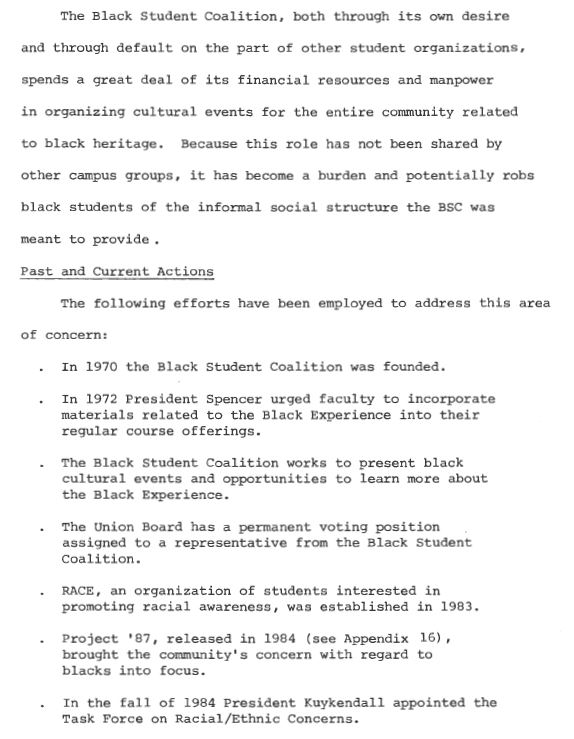
Twenty appointees and one recorder made up the Task Force’s membership. Those members were chosen by either the college president or by a committee as representatives of five distinct groups, each delineated, below:
Students:
- John C. Laughlin (Student Government Association President)
- Janet Stovall (Black Student Coalition President)
- Andrew Yon (R.A.C.E President)
- Atondra Williams (Appointed by Student Senate)
- Rodney Holman (Appointed by Student Senate)
Faculty:
- Dr. R. Bruce Jackson (Co-chairman, appointed by the president)
- Dr. John Kelton (Vice Chairman pro-tem of the faculty)
- Dr. Lauren Yoder (chosen by faculty executive committee)
- Dr. J. Alberta Hernandez-Chiroldes (chosen by faculty executive committee
Administrators:
- Will Terry (Dean of Students)
- Dr. John Griffith (Dean of Admissions and Financial Aid, co-chairman, appointed by the president)
- Dr. T.C. Price Zimmermann (Dean of Faculty)
- Paula Miller (appointed by the Advisory Committee on Minorities)
- Dr. Leland Park (Library Director)
Alumni:
- Daniel Clodfelter
- Dan LaFar, Jr.
- Calvin Murphy
Trustees:
- Dr. Thelma Adair
- John A. Mawhinney, Jr.
- Dr. J. Randolph Taylor
Recorder:
- Dr. Malcolm O. Partin
These members were then divided into one of the four following committees: Past Davidson Committee, Current Davidson Committee, Higher Education Committee, and Policy Committee. Each group conducted in-depth research on their respective topics for inclusion in a report due to the campus community “no later than November 30, 1984.”
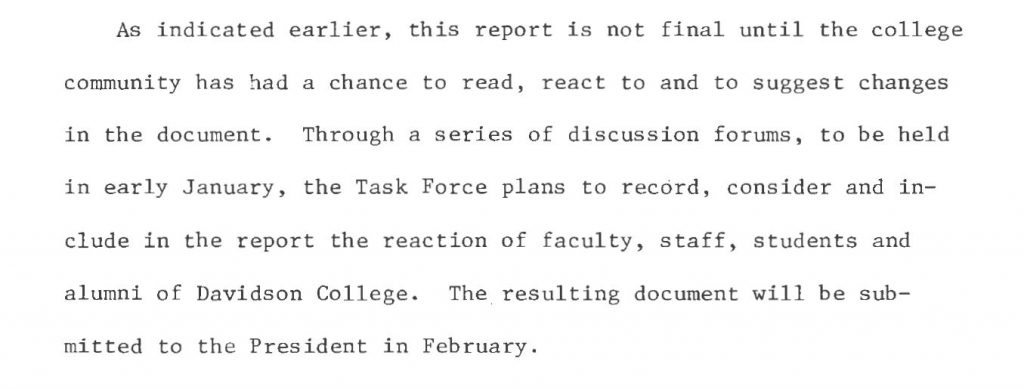
After submitting the report, the Task Force made the document available for comment and critique through a series of forums. This feedback was either included or reflected in the final report submitted to the college president in February 1985.
The Report presented several critical conclusions that later led to some institutional changes, a selection of which are paired and outlined, below:
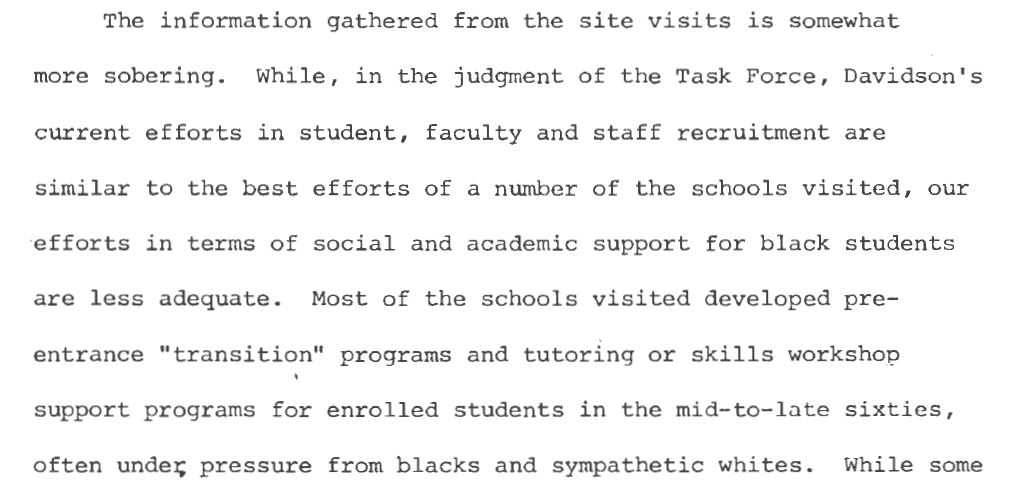
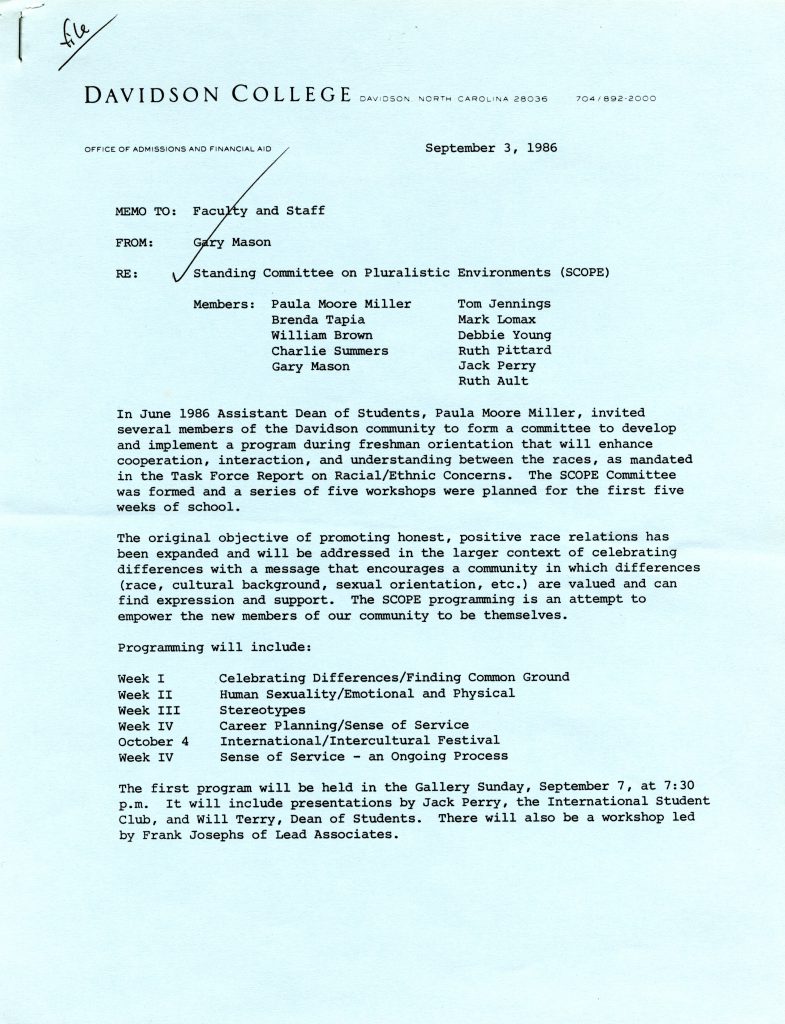
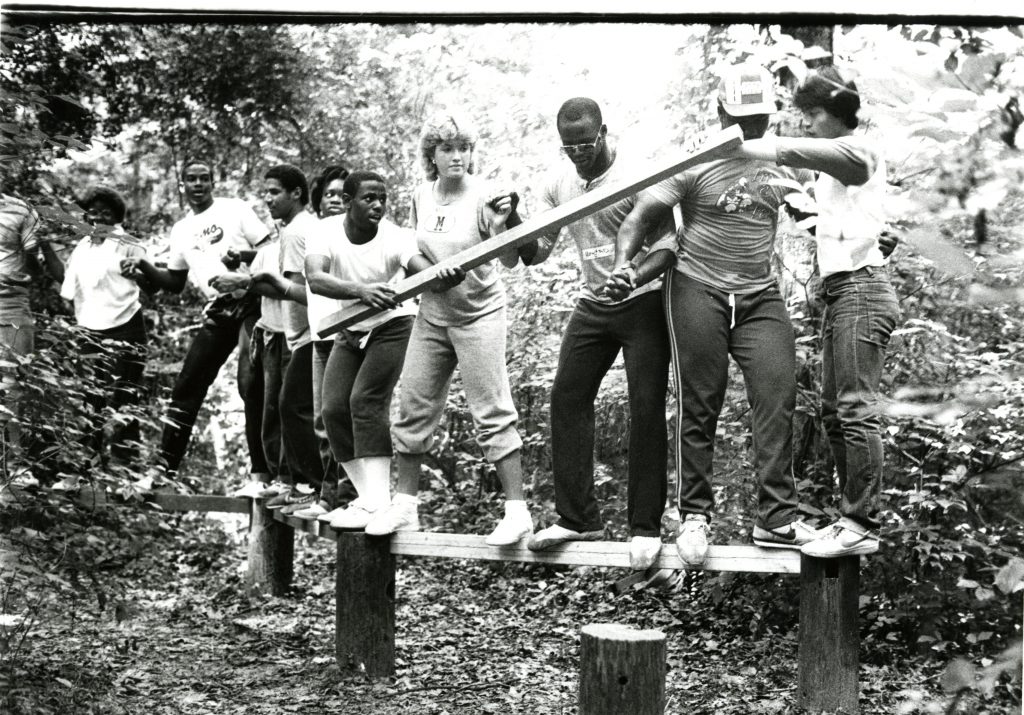
FOCUS was a Davidson College orientation program that was re-organized to better address the needs of incoming African American students after the Task Force report was completed.
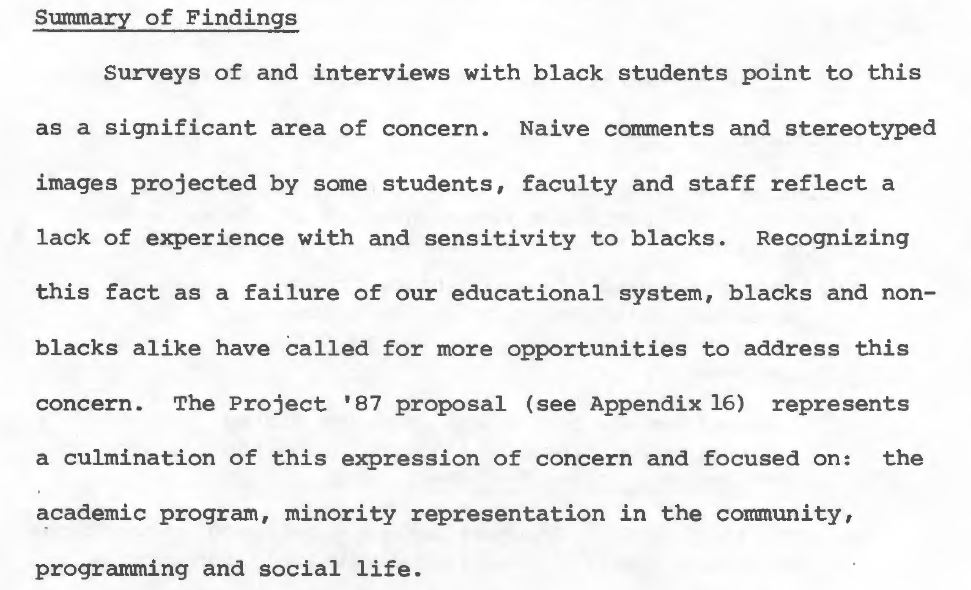
“Surveys of and interviews with black students point to this as a significant area of concern. Naive comments and stereotyped images projected by some students, faculty and staff reflect a lack of experience with and sensitivity to blacks…The Project ’87 proposal (see Appendix 16) represents a culmination of this expression of concern and focused on: the academic program, minority representation in the community, programming and social life.”
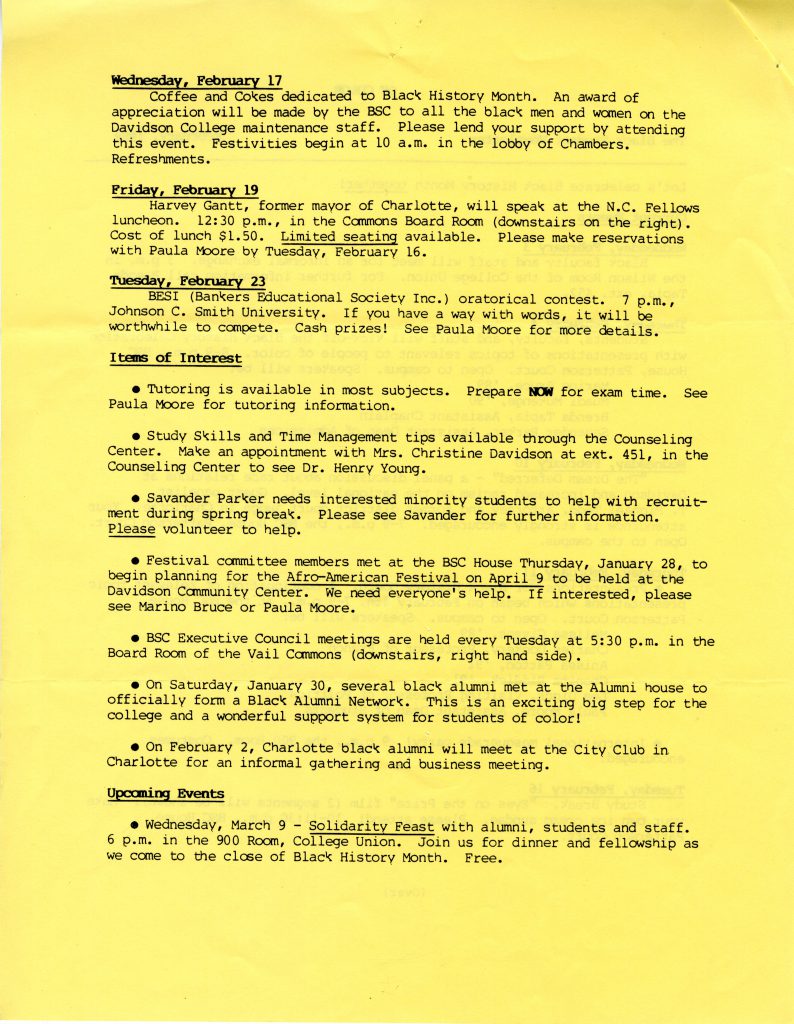
The newsletter details resources available on campus, as well as the formation of the Davidson Black Alumni Network (DBAN). Support for DBAN was specifically requested in the Final Report of the Task Force on Racial and Ethnic Concerns (1984).
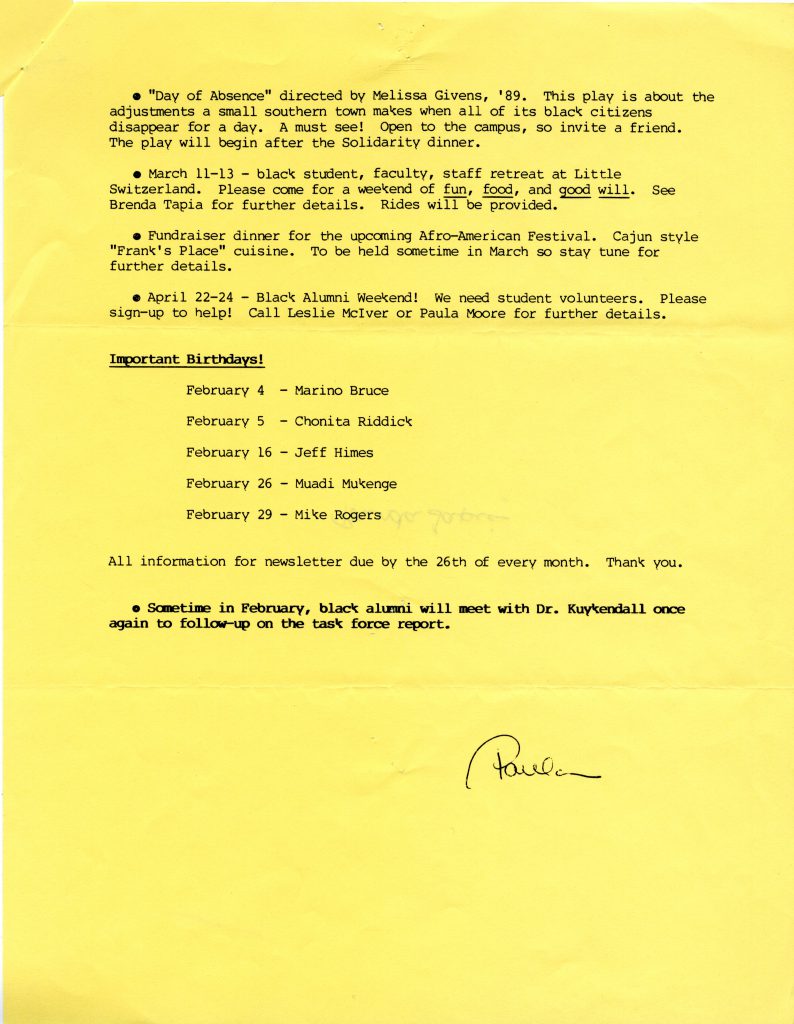
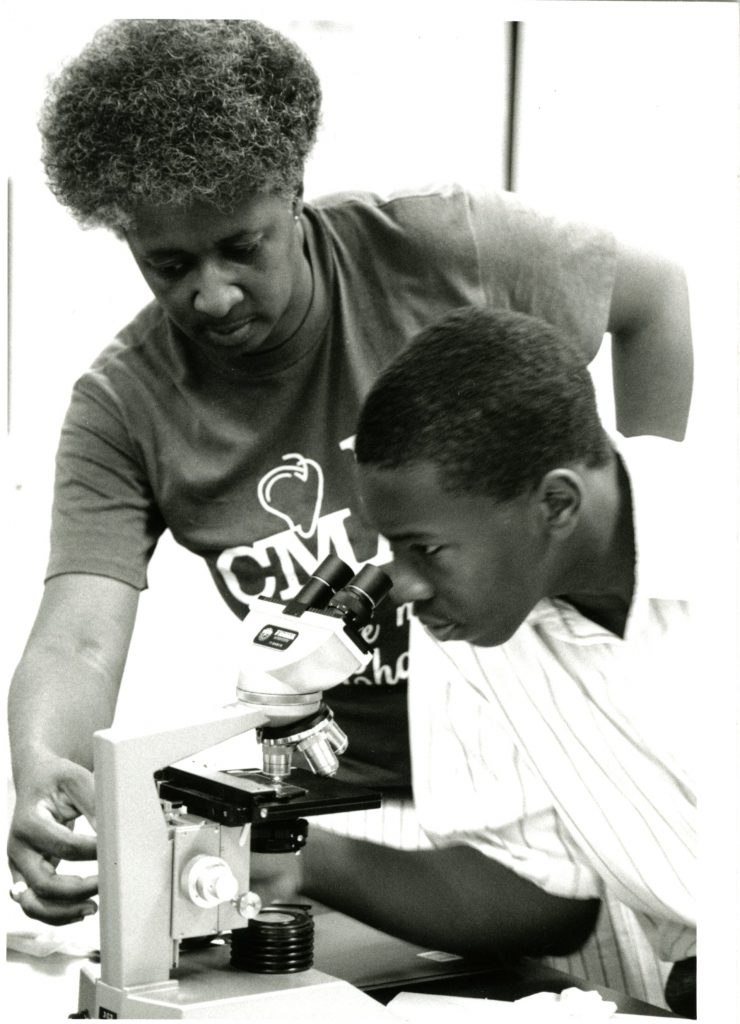
Love of Learning was established and led by Davidson College assistant chaplain Reverend Brenda Tapia in 1988 when four classes of 8th grade African American students were selected for the pilot five year program. Through Reverend Tapia, Davidson College, in partnership with the Charlotte-Mecklenburg School System, designed the program to enable secondary and post-secondary educational success for “at risk” and “promising” students by considering the whole person in addition to their academic needs.
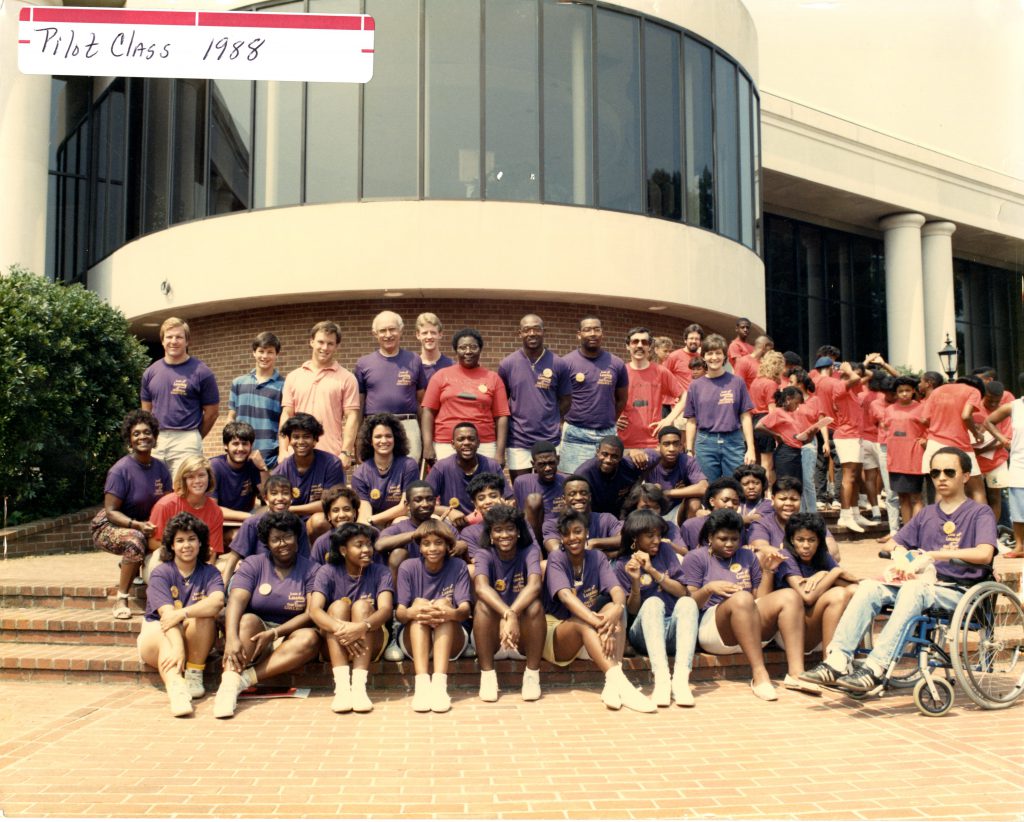
Reverend Brenda Tapia, the leader of the Love of Learning program, was hired as an assistant chaplain in direct response to the Task Force report. Reverend Tapia stands in the middle of the photograph in the red t-shirt.
The Task Force ended their report by stating, “…we hope that the “wheel will not need to be reinvented” when there is significant representation of another racial/ethnic group in our community. It is important that members of the community think creatively about implementation of strategies so that members of other racial/ethnic groups can avoid the problems blacks have experienced,” (41). One way the Archives facilitates this closing goal is by preserving and providing access to documents that detail the work and responses of previous generations.
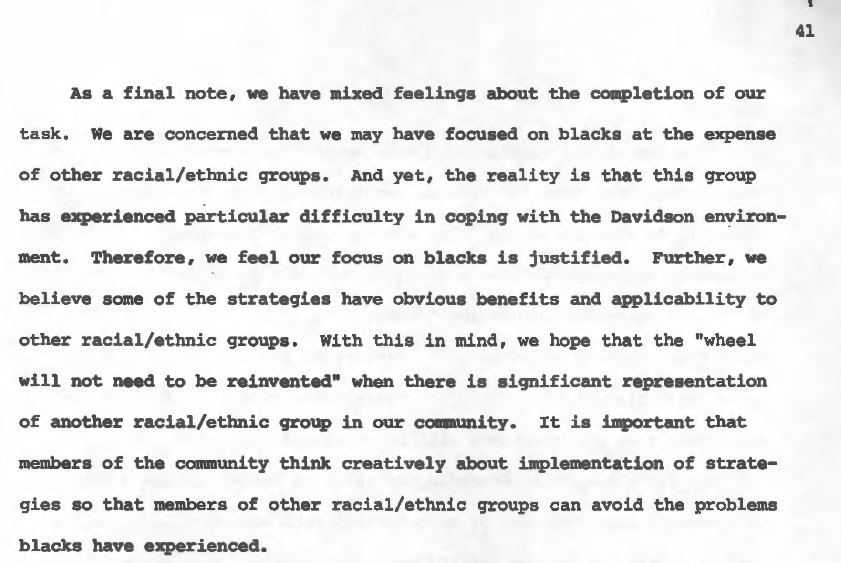
If you are interested in reading the full report, Archives & Special Collections is open Monday to Friday from 9:00am to 5:00pm. You can read this report and similar documents upon appointment – simply email archives@davidson.edu with your research question and we will find an available time.

Speak Your Mind